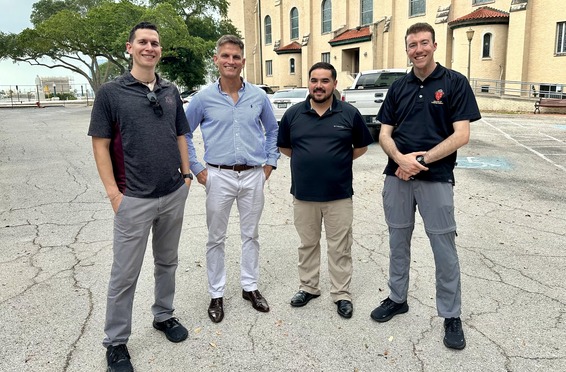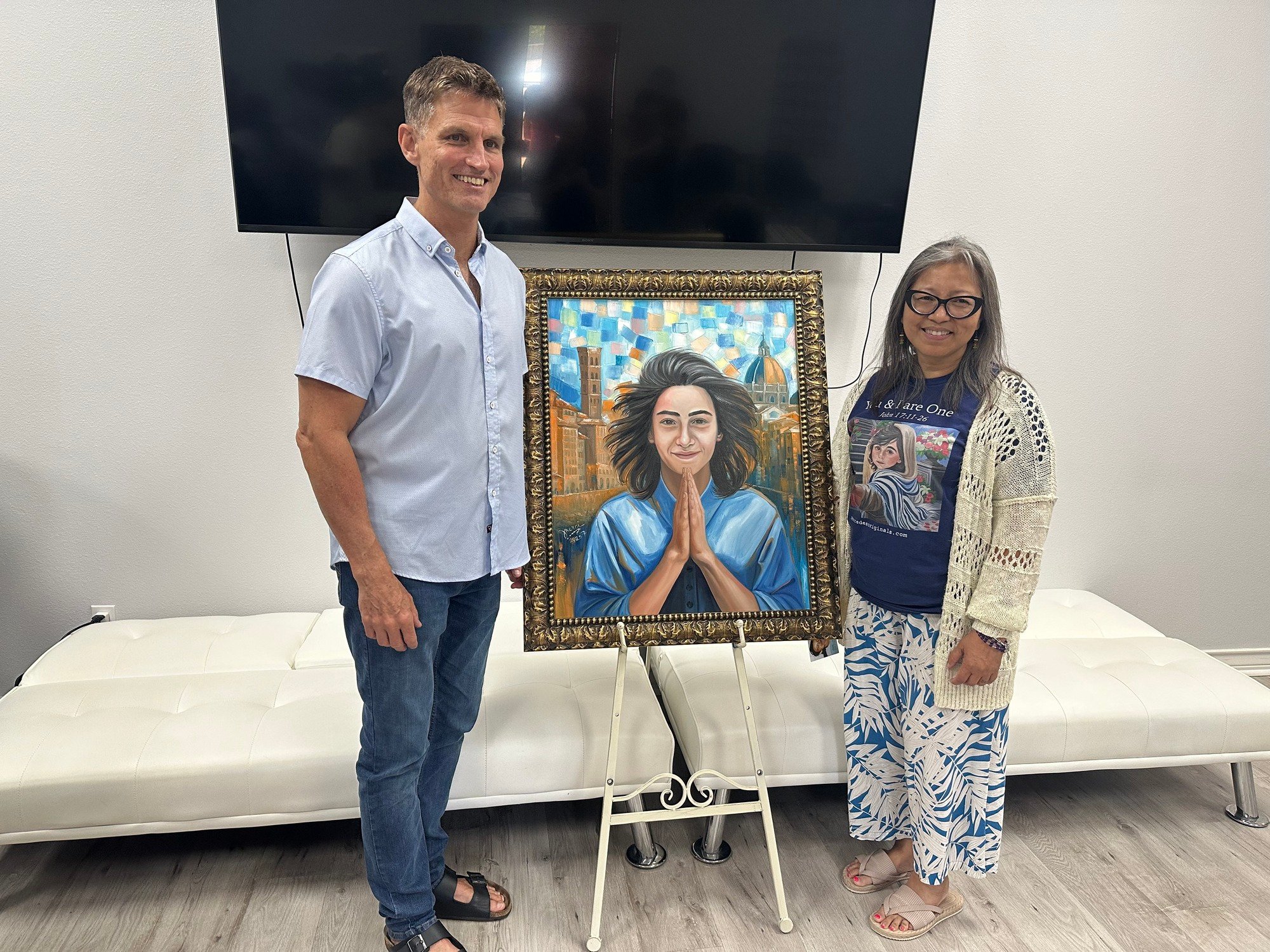Search
Helping Young People Discern God’s Will
-
 July 11, 2025For the last six years, Bob Cummings found himself in a unique position every year when attending the National Conference for Diocesan Vocation Directors – he was the only lay director among many priests. However, this never discouraged him: “I always knew that the bishop had asked me to serve in this ministry, so I was confident I was doing God’s will.” It also piqued the curiosity of many and ended up being an opportunity for him to share about his vocation as a lay consecrated Focolarino, a vowed (chastity, poverty, and obedience) single man living in a family-sized community. After accompanying many young men on their discernment journey, he has now received a new assignment from the Focolare Movement and will move to Houston to establish a men’s community there, together with other consecrated men from different parts of the world.
July 11, 2025For the last six years, Bob Cummings found himself in a unique position every year when attending the National Conference for Diocesan Vocation Directors – he was the only lay director among many priests. However, this never discouraged him: “I always knew that the bishop had asked me to serve in this ministry, so I was confident I was doing God’s will.” It also piqued the curiosity of many and ended up being an opportunity for him to share about his vocation as a lay consecrated Focolarino, a vowed (chastity, poverty, and obedience) single man living in a family-sized community. After accompanying many young men on their discernment journey, he has now received a new assignment from the Focolare Movement and will move to Houston to establish a men’s community there, together with other consecrated men from different parts of the world.
Bob moved to Corpus Christi in August 2018, after serving eight years in the Focolare community in Chicago, to join the nascent community at Holy Family Parish, where he also served as the youth minister. Bob initially began in the Vocations Office working as an assistant to Fr. Romeo Salinas and later as the director. “My work had two priorities – promoting vocations and accompanying the seminarians,” he shares. To introduce young people to the idea of vocations, he aimed to present the vocation to the priesthood as an appealing path. “I wanted to create community among those who were interested in the priesthood.” For that reason, he expanded the Andrew Dinners, encouraging many priests to attend with young men of their parishes and incorporating games, testimonies, prayer and fun to help them get to know their priests and their bishop on a more personal level. Today, these Andrew Dinners are very well attended.
The “Come and See” weekends, which involve accompanying young men to visit and experience seminary life, have also become an experience many high school and college men look forward to. The annual visit to St. Joseph Seminary in Louisiana on Palm Sunday weekend provides the opportunity to meet seminarians, hear their testimonies, see how they live their daily routine, and attend a mock seminary class. The young men who have attended are taken by the life of community and prayer and the surprisingly “normal” life of the seminarians. It can also alleviate some of the fears young men may have when they sense a call. One of the biggest fears young men tend to have is, “Will I be lonely if I follow this path?” and “Am I good and holy enough?” Through the different activities and seminary visits, the young men learn that discernment in seminary is a journey they make together with others, with the bishop, first of all, but then with formators, brother seminarians and the prayers of many, many people.
For Cummings, one main focus was to help candidates understand that becoming a seminarian is a process of discernment, not a final decision that guarantees they will become a priest: “Entering seminary means starting a journey of growth in your relationship with God, accompanied by the diocese. It’s a journey that prepares you humanly, spiritually and intellectually to carry out God’s call to serve others as his priest.” He recalls that at times he was tempted to change the name “seminarians” to “discerners,” to remove the pressure that this decision can only be made when someone is completely sure that the priesthood is their vocation and to remove the stigma when someone decides to discern out. “We should also celebrate when someone discerns out, because that means that they have understood together with others God’s will for them.” Bob Cummings with artist Merci McCoyTo encourage friendships and community among seminarians, who might be the only representatives of their diocese at a particular seminary, he initiated Summer Fraternity Days. At a location in Rockport, the seminarians pray and reflect together while also enjoying activities such as boating, pickleball lessons, dinners with families of the community, and games. The bishop is also invited to attend when he can, as well as priests of the diocese. “These bonds of friendship and fraternity will hopefully continue and grow and will be an important source of support in their priestly life and in facing the inevitable challenges in the years to come.”
Bob Cummings with artist Merci McCoyTo encourage friendships and community among seminarians, who might be the only representatives of their diocese at a particular seminary, he initiated Summer Fraternity Days. At a location in Rockport, the seminarians pray and reflect together while also enjoying activities such as boating, pickleball lessons, dinners with families of the community, and games. The bishop is also invited to attend when he can, as well as priests of the diocese. “These bonds of friendship and fraternity will hopefully continue and grow and will be an important source of support in their priestly life and in facing the inevitable challenges in the years to come.”
Looking back on his years as the only lay Vocation Director, he feels privileged that he, as the bishop would put it, “could give witness to the virginity solely lived for the Kingdom of God.” His vocation, as a consecrated Focolarino, combines the element of total gift of self to God with the experience of family, something which always attracted him. Now, after a few months of sabbatical, he will open a Focolare community in Houston aimed at helping young people discern their vocations.
